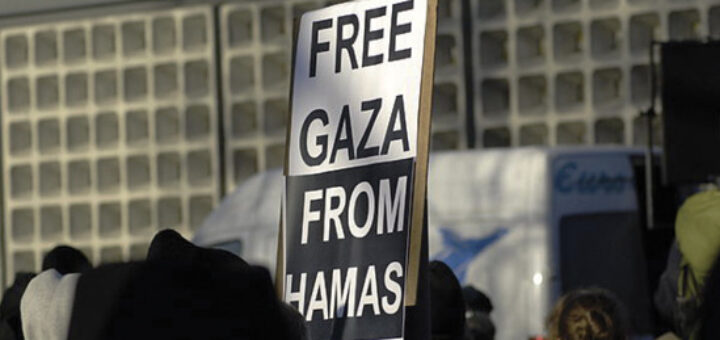U.S. supports Israel in conflict

By Matthew Hillier, Staff Writer
U.S. President Joe Biden visited Israel on Oct. 18 to discuss new changes to the humanitarian corridor to Gaza as well as aid to Palestinians in Gaza and on the West Bank.
However, this was not solely a diplomatic mission of aid. This trip also included a promise to look into allocating congressional funds for Israel’s military to fight against the militant group Hamas.
Biden is now considering a request for an expected supplemental spending of $100 billion, which will go to Israel, Ukraine and Taiwan.
According to Reuters, Israel has requested close to $10 billion from this spending package on top of the $3.6 billion it receives from the U.S. every year as part of an agreement struck between the two in 2016.
Israel and the U.S. have had a close diplomatic relationship for years, however, there is doubt on the authenticity of the motives of both Biden and the Prime Minister of Israel, Benjamin Netanyahu.
Historic conflict
To understand the conflict between Israel and Palestine, Duane Bratt, a political science professor at Mount Royal University, says it started back in 1948.
Following WWII, the Balfour Declaration of 1917 was revisited by Great Britain to establish an Arab state and Jewish state. Arab countries rejected this and attacked Israel, however Israel won the war and went further to take over Palestinian lands.
For almost 60 years Israelis have held the land, despite being threatened in ‘73 and ‘82. Additionally, the UN has condemned it and has referred to the land as occupied territories.
Flash forward to 2006, Bratt said that Israel wanted to move out of the West Bank and Gaza Strip on the condition that the Palestinian people hold an election. This resulted in the election of Hamas which then turned into a dictatorship and periodic attacks against Israel from 2006 until present day.
“What was different about the Oct. 7 attack was just the scale of the rockets, but more importantly they busted through the wall that Israel had and they already had tunnels underneath [which allowed] the direct attack on civilians and taking them as hostage” said Bratt.
In response to the Hamas attack, Israel has retaliated with attacks against Hamas and Palestinian people.
Hospital bombing
A day before Biden’s visit to Al-Ahli Baptist Hospital, the building was bombed resulting in the death of hundreds of Palestinians. As well, there was an increase in attacks from Israel against targets in Gaza.
According to CNN, both sides are not claiming responsibility for the bombing of the hospital. Many in Gaza are stating that Israel bombed the hospital with little to no warning, while Israel states that a misfired Hamas rocket was responsible for the attack.
According to AP News, Biden solidified the U.S.’s response to this bombing with this statement on Oct. 18: “Based on what I’ve seen, it appears as though it was done by the other team, not you.”
Bratt said this support from Biden is no surprise as the U.S. has been a firm ally of Israel since its creation.
“What Biden is doing is no different than what any other American president would do,” he said. “[The U.S.] is the largest military donor and the strongest ally the Israelis have.”
This support allows U.S. leverage, however Israel does not have to listen. Nethanyahu and previous leaders have autonomy away from the U.S., but the U.S. still needs to support them.
“What we’re hearing publicly is that there is no separation between the American and the Israelis,” Bratt said. “Behind the scenes privately, American officials are urging restraint of the Israelis, because they’re worried about the consequences of a humanitarian disaster in Gaza and the potential of this spreading into a wider war involving Lebanon or Iran.”
With Israel currently blockading food, water and power from Gaza, the alleged involvement of Israel in this bombing has seen public opinion turn in the wake of this crisis.
Protesting Biden
According to Gallup, Democrats are showing more support for Palestine with 49 per cent in support versus 38 per cent against. As well, only 34 per cent of Americans aged 18-39 now believe that Hamas is solely responsible for the ongoing crisis
Various campus protests condemning the actions of Israel during this crisis have also sprung up across the West. Hundreds of supporters from both sides showed up at Columbia University on Thursday, Oct. 19, which resulted in the New York campus being temporarily closed for public access.
Humanitarian aid from the U.S. was delivered to Gaza over the weekend in a 20 truck convoy, says the U.S. secretary of state in a press release on Oct. 21—an additional $100 million in aid is promised from President Biden in the coming weeks or months. Biden also took the time to state that U.S. soldiers will not lend active military support to Israel at this time.
Regardless of where the responsibility lies for the hospital bombing and the overall crisis, it’s clear that the U.S. has and will back Israel at least politically and economically.




